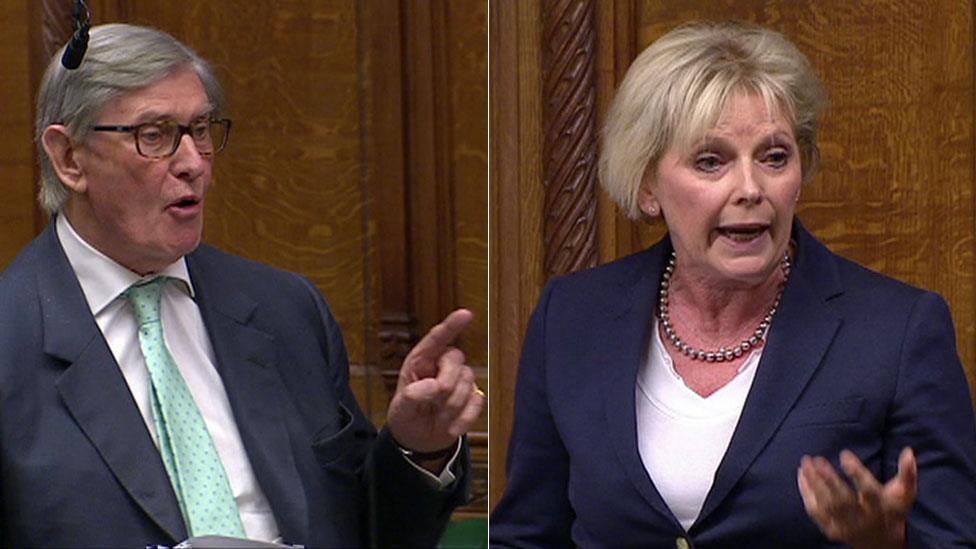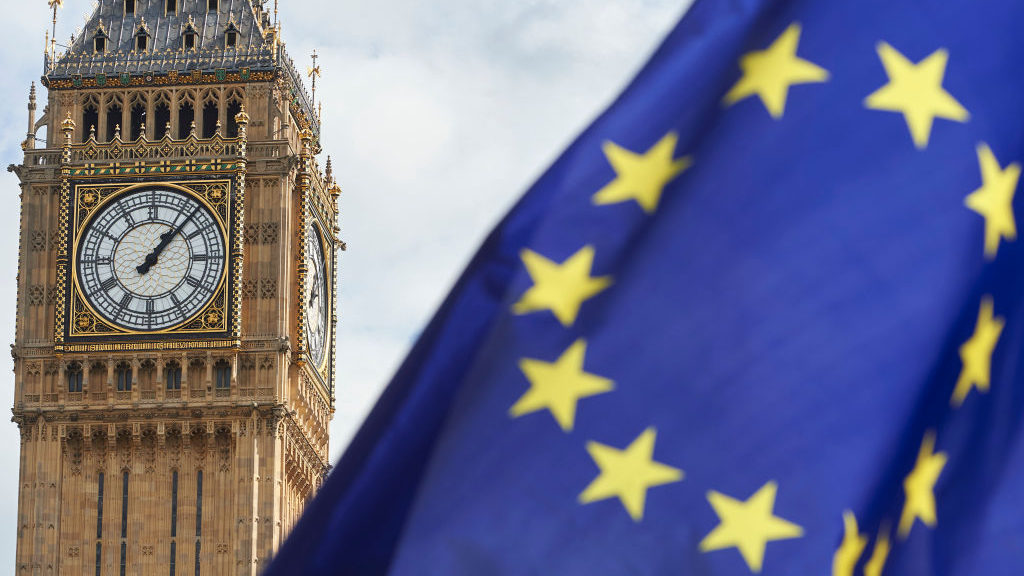What MPs will be voting on: The Brexit bill amendments
- Published
Here's a round-up of the amendments to the EU (Withdrawal) Bill that MPs voted on.
The government opposed the following Lords amendments:
Granting new powers to oversee changes made to EU law by the government
Removing the precise day of Brexit from the wording of the bill
Removing a section allowing ministers to use secondary legislation to establish when individuals can challenge the validity of retained EU law after exit
Only let ministers use delegated powers to amend retained EU law where "necessary"
Preventing ministers from using delegated powers to implement the UK-EU Withdrawal Agreement
Make staying in the European Economic Area, like Norway, a "negotiating objective" for the UK
Transferring the EU's Charter of Fundamental Rights into UK law
Allowing "enhanced scrutiny" when ministers use delegated powers to change EU employment, equality health and safety, consumer and environment rules
The government has proposed its own version of these ones:
Giving Parliament the power to decide what happens if MPs and peers reject the final Brexit deal
Explicitly preserving cooperation between Northern Ireland and the Republic and commit to no new border arrangements without the agreement of the UK and Irish governments
Allowing people to challenge UK law if it fails to comply with the general principles of EU law
Forcing ministers to maintain EU environmental principles in domestic law after Brexit
Compelling ministers to aim for a deal allowing unaccompanied child refugees to join relatives in the UK
The government has accepted this amendment:
Allowing the UK to replicate EU law made after Brexit day and continue to participate in EU agencies
The government is backing a compromise backbench amendment on this:
Forcing the government to report on "steps taken to negotiate a customs union with the EU" by 31 October
- Published12 June 2018

- Published12 June 2018

- Published11 June 2018
